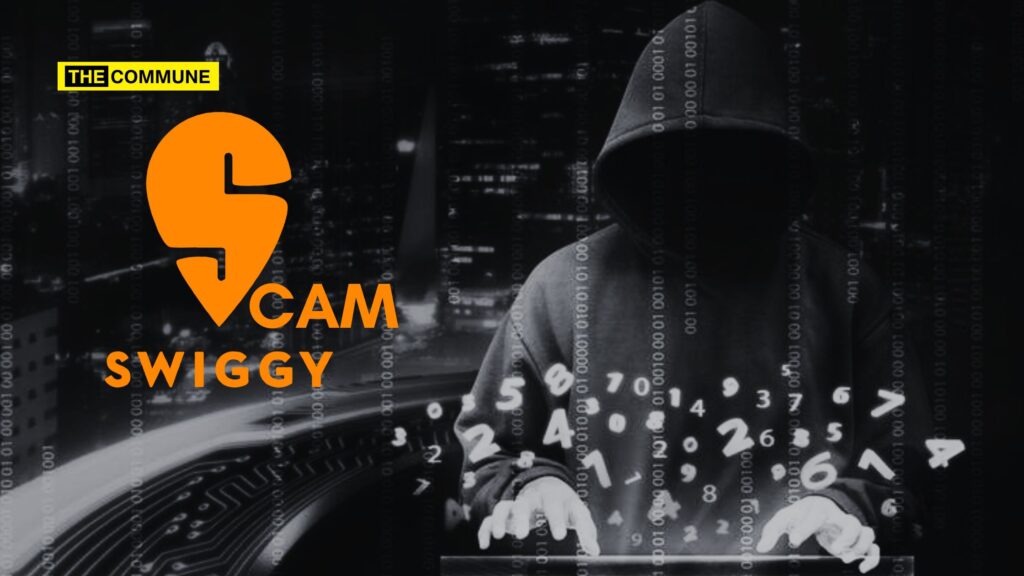In a development that could be labeled as a major scam, it has emerged that the popular online food delivery app Swiggy has been surreptitiously adding an extra amount of approximately ₹3 to the bills of unsuspecting customers with each order they place.
Users noticed that all Swiggy transactions were rounded up to whole rupee amounts not to the next nearest number but close to ₹3 more.
For instance, if a transaction summed up to 271.91, instead of adding a mere 9 paisa to round it up to the whole rupee, Swiggy tacks on an extra ₹3.09, a notable difference.
Many customers find this practice unjustifiable, especially considering the scale of Swiggy’s operations. Even a minor overcharge per order could accumulate to crores of rupees annually. What further raises eyebrows is that this additional income is being collected after tax, which raises questions about how Swiggy accounts for the substantial surplus they accumulate from their customers without offering any additional service or notification.
Initially, Swiggy claimed that the Reserve Bank of India (RBI) has mandated this rounding-up practice. Even if one assumes that RBI did indeed issue such an order, the addition of ₹3.09 to a bill of ₹671.91 hardly seems to adhere to the principle of rounding off to the nearest whole amount. When a user pointed out the fallacies in the argument, Swiggy deleted the tweet.
And Swiggy is claiming @RBI is forcing them to steal crores of rupees from their customers every year.
In what universe does stealing money like this without any notice "obviate unnecessary discomfort"? https://t.co/unFFqeH0zc pic.twitter.com/smiJcqh7yg
— mas.to / (@kingslyj) September 21, 2023
Many users have expressed their concern and frustration over what appears to be a systematic attempt to overcharge customers by a seemingly trusted service.
However, it remains unclear how such a practice, which seems to deviate from common rounding norms, aligns with RBI’s regulations or objectives. Many customers are left wondering how overcharging customers without prior notice can be considered a legitimate practice.
Deepak Shenoy, Founder and CEO of Capitalmind posted on X how his actual bill amount adds up to ₹255.60 but Swiggy charged ₹259.
Holy moly. This is actual fraud and I found that @Swiggy is doing this even for me! Here's my last order and it adds up to 255.60. But they charge 259?
This stinks. It can't be some random error, it seems to be on purpose to add rs. 3 extra. What's going on? https://t.co/kfm9kGaxXO pic.twitter.com/8mTyCZEmom
— Deepak Shenoy (@deepakshenoy) September 21, 2023
Another customer wrote how his actual bill was 176.04 but he was charged ₹179
https://twitter.com/jshilanjanm/status/1704882398423585053
Another user shared how his bill of ₹723.5 was rounded off to ₹727
#SwiggyScam is real. The actual bill should have been 723.50. But was charged 727.
Uninstalling @Swiggy even though I have Swiggy One.
What a sham! pic.twitter.com/w5UEmU1ssQ
— Srivatsa (@TweetsBySN) September 21, 2023
One of the staff of The Commune who had ordered lunch through Swiggy on 21 September 2023 found that the bill amount of ₹257.9 to ₹261.
Here is another.
Scam by @swiggy check your bills now. Here is mine, I wonder how much money they have looted so far as they have crores of transactions on a daily basis. 👇
The amount should be 615+2−153+25.50 = 489.50 but they charged 493 – #swiggyscam https://t.co/YoIS6KEke3 pic.twitter.com/oYulmRHBPd
— Abhishek Bhatnagar (@abhishek) September 21, 2023
The issue of unexplained overcharging has caused an outcry among Swiggy users, who are now demanding transparency and clarity regarding their transactions.
The Commune reached out to a representative of Swiggy for comments. This article will be updated once we receive a response.
Click here to subscribe to The Commune on Telegram and get the best stories of the day delivered to you personally.

